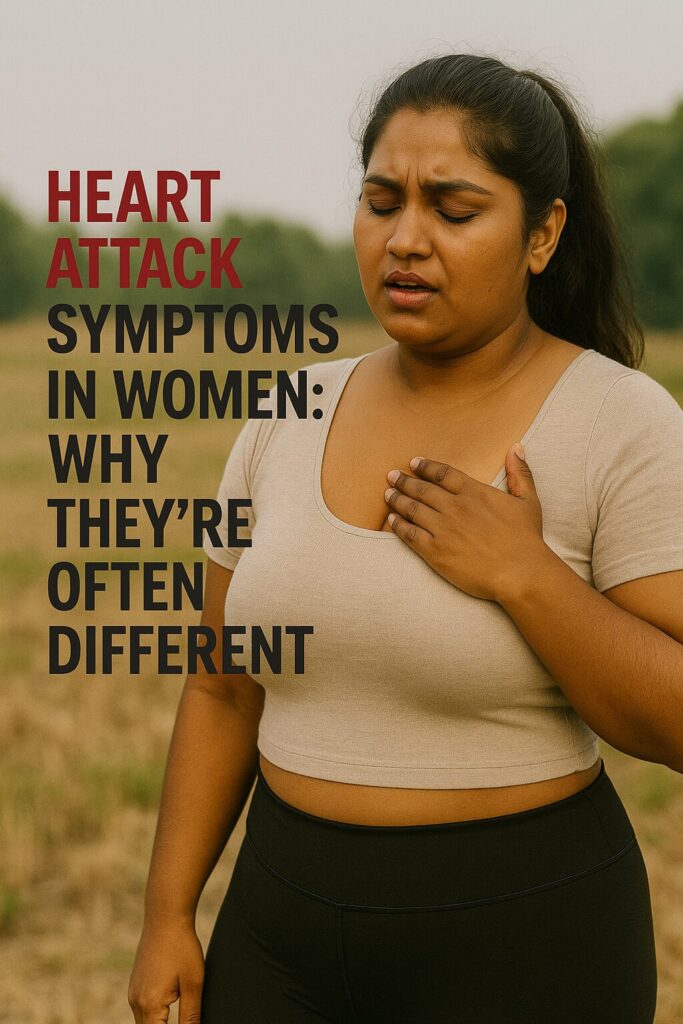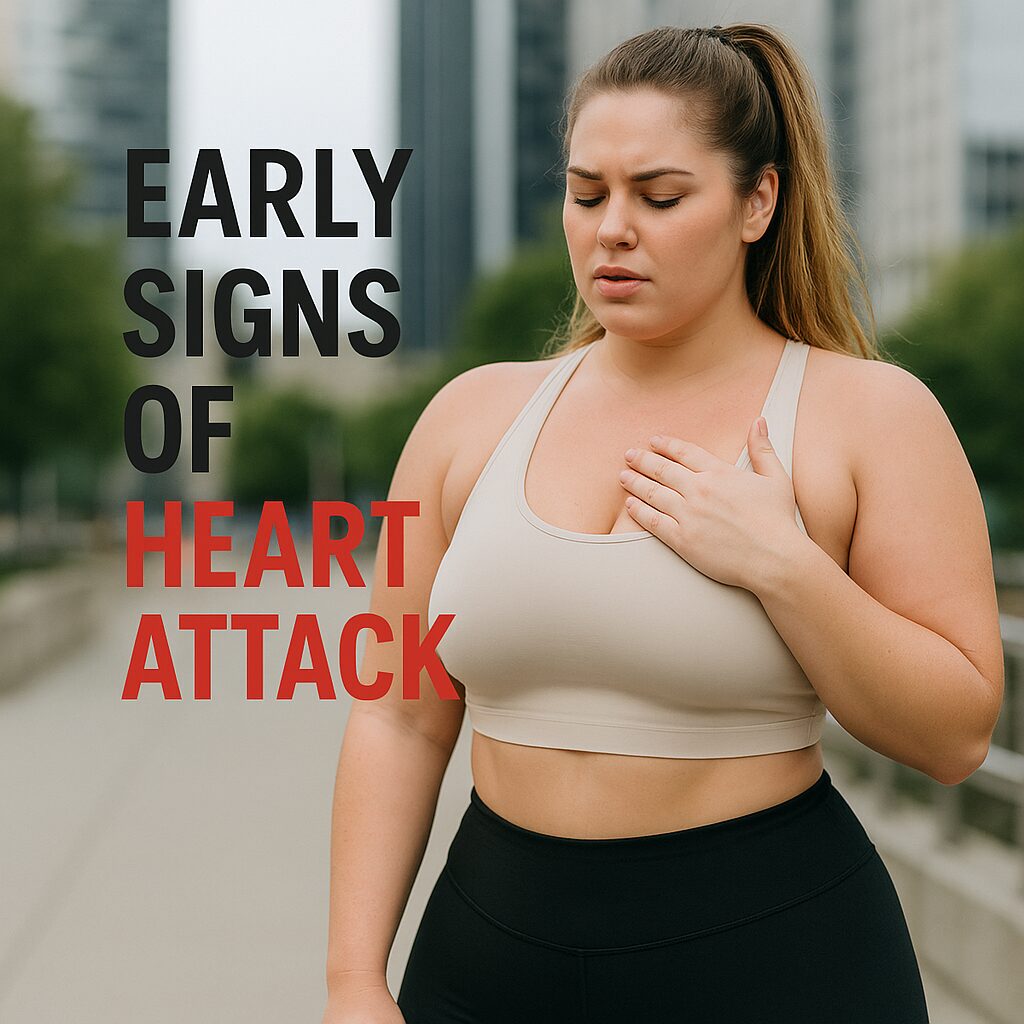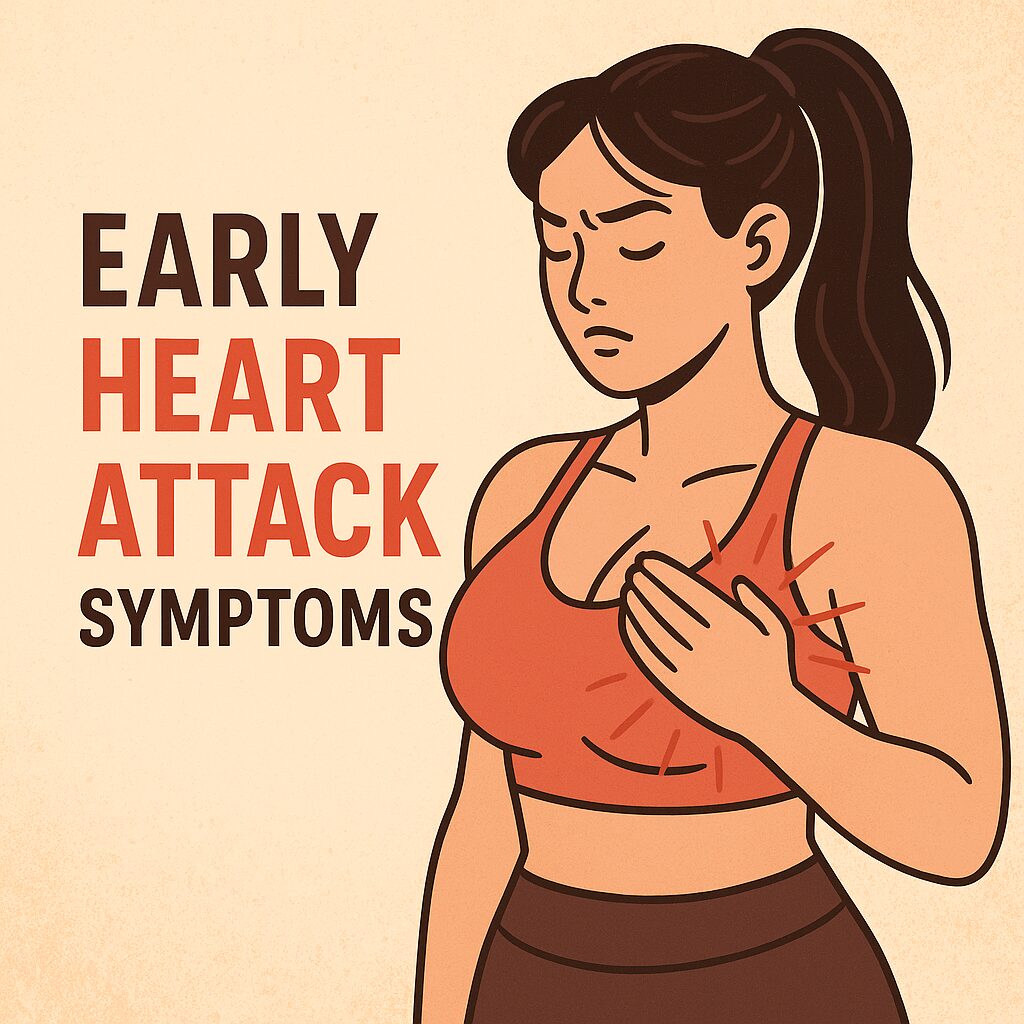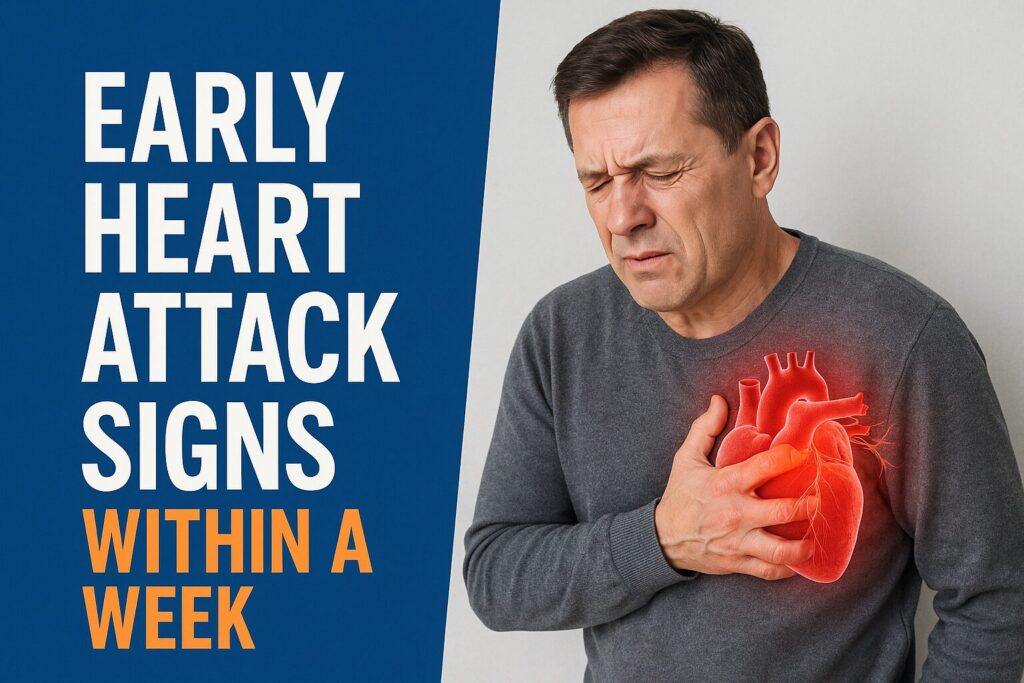Introduction About Heart Attack Symptoms in Women

When it comes to heart attacks, women often have very different symptoms than men. These subtle and unique symptoms can lead to delays in diagnosis and treatment, putting women at increased risk. Understanding these differences is vital for early detection and lifesaving measures.
Why Heart Attack Symptoms In Women Are Differ
Women’s heart structure and hormonal influences significantly affect the variation in heart attack symptoms. According to Dr. Emily Harris, a cardiologist specializing in women’s heart health, “estrogen levels can mask or alter the common symptoms of a heart attack, making symptoms even more atypical.” Women often experience symptoms unrelated to chest pain, which is the hallmark of a heart attack in men.
Common Symptoms in Women
Read Also: Early Heart Attack Symptoms: What Your Body Tells You Weeks in Advance
Here are the most commonly reported heart attack symptoms in women:
- Unexplained Fatigue
Fatigue unrelated to physical exertion is often a warning sign. Many women describe it as extreme exhaustion that makes daily tasks difficult. - Shortness of Breath
Difficulty breathing, even while resting, can be a sign of a serious heart problem. - Upper Back, Jaw, or Neck Pain
Unlike the sharp chest pain often reported by men, women may experience dull pain that radiates to areas such as the upper back, jaw, or neck. - Nausea and dizziness
Persistent nausea and dizziness, often misinterpreted as stress or digestive problems, are early signs that should not be ignored. - Chest Discomfort
Although it is not always the main symptom, women may experience tightness or pressure in the chest.
Real-life case study: Saving lives through early detection
Mary Thompson, a 52-year-old fitness enthusiast, felt consistent back pain and fatigue for weeks. Thinking it was due to stress, she delayed visiting her doctor. A routine checkup revealed a blocked artery, and she underwent successful treatment. Mary’s story underlines the importance of recognizing subtle symptoms and seeking timely medical advice.
The cardiologist’s point of view
Dr. Sharonne Hayes, founder of the Women’s Heart Clinic at the Mayo Clinic, says, “We’ve been conditioned to think of heart attacks as sudden and dramatic. For women, they’re often subtle and cumulative, requiring greater vigilance.”
Dr. Clyde Yancy from Northwestern University adds, “It’s crucial to ask women about atypical symptoms like extreme fatigue or indigestion during routine checkups. These signs often precede severe cardiac events.
Doctor’s quotes about women’s symptoms
Here are some doctor studies: Studies And Insight About Heart Attack Symptoms in Women
Dr. Susan Lee emphasizes, “Women often dismiss symptoms like fatigue and shortness of breath as minor. However, these could be warning signs of an impending heart attack.”
Dr. Michael Carter adds, “Women’s heart attack symptoms are often more diffuse, making education on these differences critical for timely intervention.”
Risk factors specific to women
Certain factors increase the risk of heart attack in women:
- Hormonal Changes: In postmenopausal women the protective effect of estrogen decreases, increasing the risk.
- Pregnancy Complications: Conditions such as gestational diabetes and preeclampsia are early indicators of future heart disease.
- Autoimmune Diseases: Disorders such as lupus and rheumatoid arthritis disproportionately affect women, raising cardiovascular risks.
Prevention: What Women Can Do
Prevention is the best medicine. Here are actionable steps women can take:
- Healthy Diet: Focus on a heart-healthy diet rich in whole grains, fruits, and lean proteins.
- Regular Exercise: Aim for 150 minutes of moderate activity weekly.
- Routine Checkups: Annual health screenings can help catch early signs of cardiovascular issues.
- Manage Stress: Practices like yoga and meditation are excellent for heart health.
Conclusion
If you or a loved one is experiencing unusual symptoms, don’t ignore them. Make an appointment with a healthcare professional today. Early detection can make a big difference.
Keep sharing this article to your loved ones.
Please Note:
We try to provide complete information from our side, but we do not make any kind of claim. Please follow any exercise or supplement only after consulting your health doctor or exercise coach.
Sometimes we also use of AI to cross-check our information, but the information given by AI is checked and corrected by the Fit Hut team before writing it on fithut.in and before delivering it to you.






Pingback: Doctor Studies And Insight About Heart Attack Symptoms in Women - fithut.in
Pingback: Early Heart Attack Signs Within a Week: 7 Life-Saving Clues!